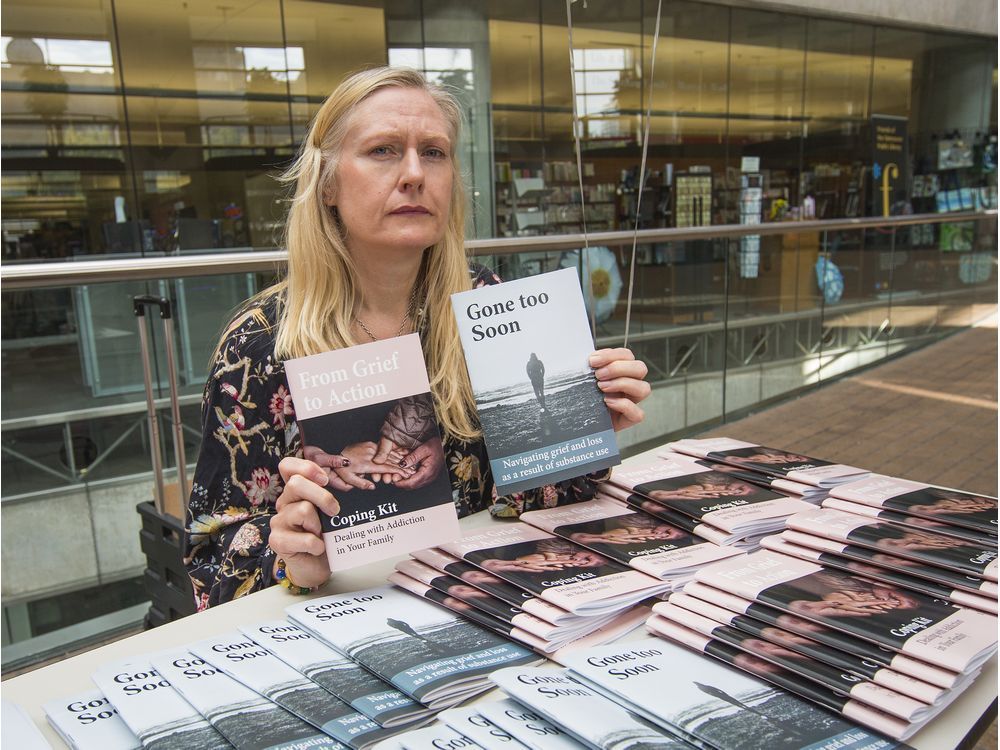Woman refuses to burn out her torch as she marks Overdose Awareness Day, crisis

Credit to Author: Glenda Luymes| Date: Sun, 01 Sep 2019 00:04:46 +0000
It was during the International Overdose Awareness Day activities last year when Tabitha Montgomery really noticed it — events that had once been rallies had become vigils.
“There was a feeling that no one was listening. That it was not making a difference,” she recalled Saturday as she set up an information booth at the Vancouver Public Library.
Montgomery’s booth was one of several awareness activities happening in B.C. this weekend to mark International Overdose Awareness Day, a global movement designed to remember those who have died from drug overdoses. And to push for change.
However, some advocacy groups that organized activities in the past were noticeably absent from this year’s list of planned events.
Montgomery attributed that to burnout.
“It can be difficult to keep going,” she said. “I want to thank those who have been paving the path for so long.”
Montgomery’s father, her best friend and her daughter’s father all died from drugs. She believes the only way to end the overdose crisis is to remove the stigma and judgment around drug use and addiction and bring the issue fully into mainstream health care.
“This is a torch in my heart,” she said.
While she doesn’t represent any single group, the former director with From Grief to Action has had success asking B.C. libraries to display free books on grief and addiction in their community resources sections. She’s hoping to get the material into more libraries in the months ahead.
(Postmedia News photo by Francis Georgian)
In a statement, B.C. Minister of Mental Health and Addictions Judy Darcy recognized those who have died are “parents, children, co-workers, neighbours, partners, friends and loved ones.”
The politician said the B.C. Centre for Disease Control estimates 4,700 deaths have been averted by scaled-up distribution of Naloxone, more overdose prevention sites and better access to medication-assisted treatment, known as opioid agonist treatment.
“We have a responsibility to each other, our communities and the loved ones we have lost to keep compassion, respect and understanding at the forefront of our minds — and to continue to escalate our response,” she said.
In June, 73 people died of suspected illicit drug overdoses across the province, a 35 per cent drop from June 2018 when 113 people died, according to data collected by the B.C. Coroner’s Service.
But Montgomery said addiction is still treated like a “moral and criminal issue,” rather than a health issue.
“There’s so much misunderstanding,” she said.
Overdose awareness events were held around the world, including in many B.C. cities such as Vancouver, New Westminster, Kamloops, Kelowna, Powell River, Prince George and Quesnel.
In Vancouver’s Downtown Eastside, the Overdose Prevention Society supported the creation of a mural in the alley near its injection site. The project wrapped up with an art show.
CLICK HERE to report a typo.
Is there more to this story? We’d like to hear from you about this or any other stories you think we should know about. Email vantips@postmedia.com